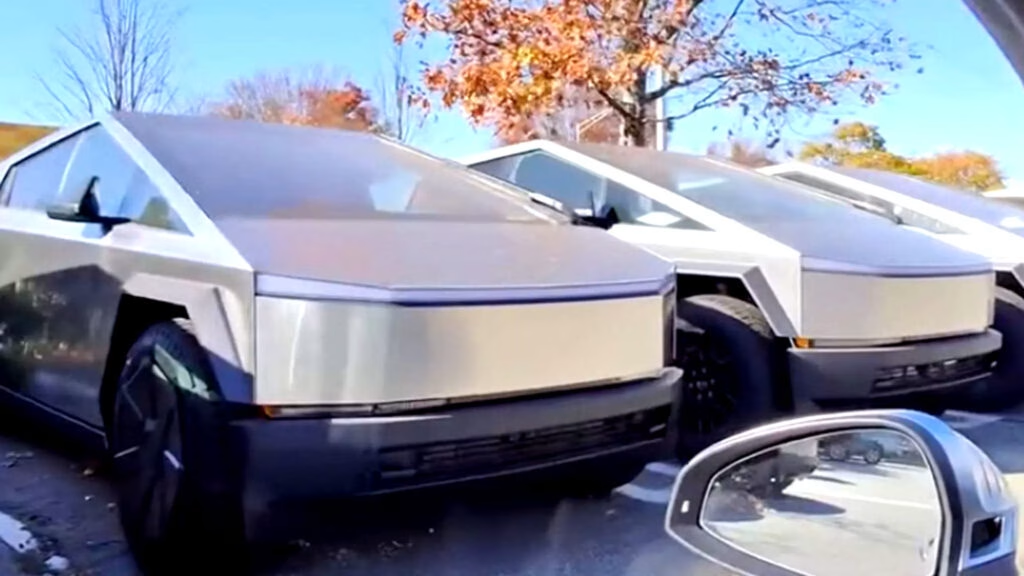Detroit is currently facing a rather unusual problem: a surplus of unsold Tesla Cybertrucks parked in a shopping center. This situation has sparked frustration among city officials, who are grappling with the implications of this unexpected inventory overflow. Let’s dive into what’s happening and what it means for Tesla and the city.
Why Are Unsold Cybertrucks Piling Up in Detroit?
The Cybertruck, Tesla’s highly anticipated electric pickup, has not met sales expectations since its launch. Initially, CEO Elon Musk boasted about having over a million reservations, but the reality has been starkly different. In 2023, only about 40,000 units were sold, falling dramatically short of the 250,000 Tesla had projected. This shortfall has left the company with a significant number of unsold vehicles, many of which are now parked at Hunter’s Square shopping center in Farmington Hills, a suburb of Detroit.
The shopping center, which features a mix of closed and operational businesses, is not an ideal location for vehicle storage. City planners have pointed out that using the lot for this purpose violates local zoning codes. Charmaine Kettler-Schmult, the director of planning and community development for Farmington Hills, confirmed that the landlord has been notified about the violation, but enforcement can be a slow process.
What’s the City’s Response?
City officials are understandably upset about this situation. The presence of dozens of Cybertrucks in a rundown mall parking lot is not just an eyesore; it raises questions about compliance with city regulations and the potential impact on future redevelopment plans for the area. The shopping center is slated for significant redevelopment, which adds another layer of complexity to the situation.
While the city is taking steps to address the issue, the enforcement process can be lengthy. This has left many wondering how Tesla plans to resolve the surplus of vehicles and what it means for the brand’s reputation in the region.
How Is Tesla Responding to Sales Challenges?
In an effort to boost sales, Tesla has recently introduced a more affordable version of the Cybertruck, priced at $69,990. This single-motor, rear-wheel drive model aims to attract a broader audience. Additionally, the company has been offering various incentives, including discounts and free supercharging for buyers of other models. Despite these efforts, the Cybertruck continues to face stiff competition, particularly from more traditional pickup options like the Ford F-150 Lightning, which has been outselling it.
The situation highlights a significant challenge for Tesla as it navigates the complexities of the automotive market. While the company has made strides in electric vehicle technology, consumer preferences and market dynamics can be unpredictable.
What’s Next for the Cybertruck?
As Tesla works to clear the backlog of unsold Cybertrucks, it will need to focus on not just improving sales figures but also on restoring its image. The Cybertruck was once seen as a revolutionary vehicle, but the current circumstances have led some to label it as one of the biggest flops in recent automotive history.
The big takeaway? The Cybertruck’s journey isn’t just about electric innovation; it’s also about adapting to market realities. Tesla’s ability to pivot and make strategic adjustments will be crucial in the coming months. For those watching the electric vehicle market, this situation serves as a reminder of the challenges that even the most ambitious companies can face.
So, if you’re considering a Cybertruck or any electric vehicle, keep an eye on how Tesla navigates this tricky landscape. The automotive world is always evolving, and sometimes, the best opportunities come from unexpected challenges.

